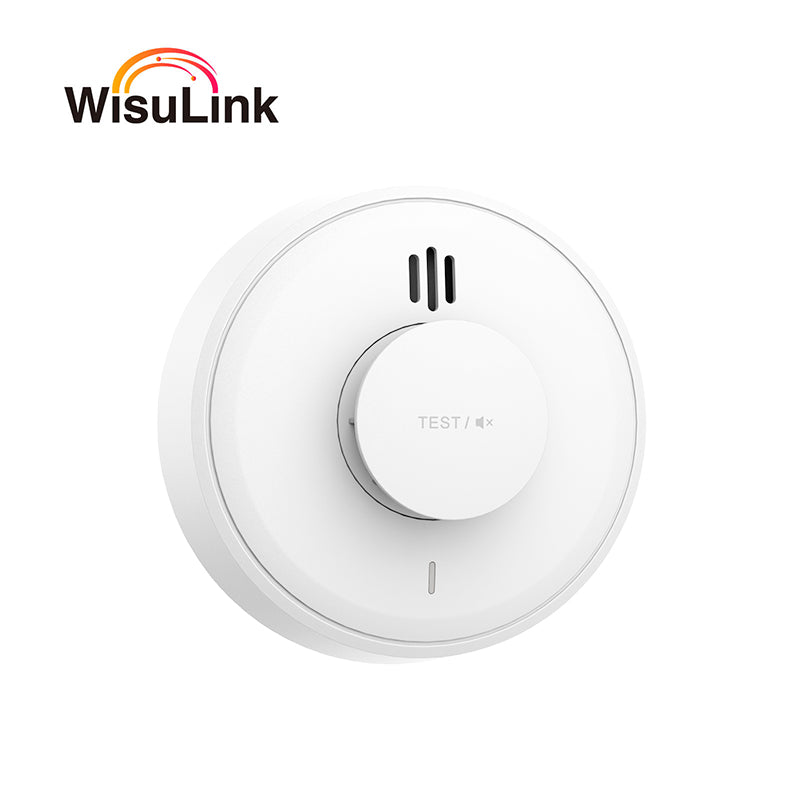Imagine you’re at home in Edinburgh, cooking dinner, or in a Glasgow café grabbing a coffee. Suddenly, there’s a small fire—or someone tries to break into a nearby shop. What’s the first thing that needs to happen? An alarm needs to go off fast—and not just in one spot, but where it can be heard and acted on quickly. That’s where Scotland’s “linked up alarms” come in. They’re not just single beepers—they’re systems that work together to keep homes, shops, schools, and streets safer. Let’s break down what they are, how they work, and why they matter for people in Scotland.
How Do Linked Up Alarms Actually Work?
Let’s start with the basics—no fancy tech words, just plain sense.
1. The Simple Idea Behind Them
Linked up alarms are like a group of friends who text each other instantly. Normally, a single smoke alarm only beeps where it is. But a linked system? If one alarm detects danger (like smoke or a break-in), it tells all the other alarms in the system to beep too. And sometimes, it even sends a message to a central team (like a building manager or security company) so they can act fast.
Think of it this way: If your kitchen smoke alarm goes off, a linked system will make the alarm in your bedroom beep too—so even if you’re upstairs, you’ll hear it. In a school, if an alarm near the gym detects a problem, every classroom’s alarm will go off at the same time. No more missing the warning because you’re in a different room!
2. The Bits That Make It Work
You don’t need to be a tech expert to understand the parts—they’re all pretty straightforward:
- Sensors/Detectors: These are the “eyes and ears” of the system. There are smoke detectors (for fires), motion sensors (for people breaking in), and even heat detectors (for places like kitchens where smoke from cooking might set off a false alarm).
- Control Panel: This is the “boss” of the system. It’s usually a small box (often in a quiet spot like a hallway or office) that connects all the sensors. When a sensor finds danger, it sends a signal to the control panel—and the panel tells all the alarms to go off.
- Alarms/Buzzers: These are the loud beepers (or sometimes flashing lights) that let you know something’s wrong. In linked systems, they all go off together so no one misses the warning.
- Connection: How do they “talk” to each other? Some use Wi-Fi (like your phone connects to the internet), some use wires (for bigger buildings like hospitals), and some use radio signals (good for homes where you don’t want to drill holes for wires).
Why Linked Up Alarms Are So Important in Scotland
Scotland has its own unique needs when it comes to safety—and linked up alarms fit right in.
1. Keeping Homes Safer Every Day
Lots of Scottish homes are older, with multiple floors or thick walls. A single smoke alarm might not be heard from the attic to the basement. Linked alarms fix that. For example:
- If a space heater in the living room starts to overheat, the heat detector there will trigger all the alarms—so if you’re in the bathroom or bedroom, you’ll hear it right away.
- For families with kids or older relatives, this is a big win. You don’t have to worry about someone sleeping through a single alarm in another room.
They also help with break-ins. If a motion sensor by your front door detects someone trying to get in, the alarm will go off in every room—and sometimes even send a alert to your phone. That way, you can call the police faster.
2. Protecting Public Places We All Use
Think about the places you visit regularly: schools, supermarkets, train stations, or community centers. These spots have lots of people, so a single alarm just isn’t enough. Linked up alarms make sure everyone gets the warning at the same time.
- In a school, if a smoke detector near the canteen goes off, every classroom, the playground, and the staff room will hear the alarm. Teachers can get kids outside quickly, without anyone being left in the dark.
- In a big supermarket in Aberdeen or Dundee, linked alarms mean staff can guide shoppers to exits fast—no one misses the warning because they’re in the back aisle buying milk.
What’s the Deal With Linked Up Alarms in Scotland’s Market?
You might be wondering: Who makes these systems? And are they getting better? Let’s keep it simple.
1. Who’s Selling Them?
There are a few big names in Scotland’s linked alarm market. Some are national companies (like ADT or Verisure) that sell systems for homes and big businesses. Others are local Scottish firms that know the area well—they understand things like old stone houses or rural homes that need extra coverage.
Most of these companies offer different packages: small systems for flats, bigger ones for houses, and huge setups for hospitals or shopping centers. The key thing is they all focus on making the systems easy to use—no complicated buttons or apps unless you want them.
2. What’s Changing? (Trends You Can Actually Notice)
Linked up alarms aren’t stuck in the past—they’re getting smarter, but in simple ways:
- Phone Alerts: More systems now send a text or app notification to your phone if the alarm goes off. So if you’re at work and there’s a problem at home, you’ll know right away (and can call a neighbor or the fire service).
- Battery Warnings: No more guessing when the battery is dead. The system will beep softly (or send you a message) to tell you to replace it—so you never have an alarm that doesn’t work.
- Works With Other Smart Stuff: Some linked alarms connect to your smart lights or doorbells. For example, if the fire alarm goes off, your lights might turn on to guide you to the exit. It’s not fancy—it’s just helpful.
Wisualarm’s Linked Up Alarms: Simple, Safe, and Made for Scotland
If you’re thinking about getting a linked up alarm (for your home or a small business like a café or shop), Wisualarm’s linked series is a great pick. Here’s why it’s easy to love:
1. It’s Super Easy to Use
You don’t need to be good with tech to set it up. Wisualarm’s system comes with clear instructions—no confusing jargon. The control panel has big buttons, and the app (if you use it) is simple: just tap to check if the alarms are working, or to turn them off if you accidentally set one off (like burning toast!).
2. It’s Reliable (No False Alarms!)
One of the most annoying things about alarms is false beeps (thanks, burnt cookies!). Wisualarm’s sensors are smart—they can tell the difference between real smoke (from a fire) and smoke from cooking. So you won’t be woken up at 2 AM for no reason.
3. It’s Made for Scottish Homes and Businesses
Wisualarm knows Scottish homes have thick walls and sometimes spotty Wi-Fi. Their linked alarms use strong radio signals, so even if your home is old or in a rural area, the alarms will still “talk” to each other. And for small businesses (like a Edinburgh bookstore or a Inverness B&B), it’s easy to add extra sensors if you expand—no need to buy a whole new system.
4. You Get Peace of Mind
Whether you’re at home, at work, or on holiday, Wisualarm’s linked system has your back. If something goes wrong, all the alarms go off, and you can get a text alert. It’s one less thing to worry about—especially in the winter, when fires from heaters or boilers are more common.
Conclusion
Linked up alarms in Scotland aren’t just “another tech thing”—they’re a simple way to keep your family, your home, and the places you love safer. They work together to make sure you never miss a warning, and they’re getting easier to use every day.
If you want a linked up alarm that’s straightforward, reliable, and made for Scottish life, Wisualarm’s linked series is the way to go. It takes the stress out of safety—so you can focus on the important stuff, like enjoying a cup of tea at home or running your business.
Ready to learn more? Head to Wisualarm’s website to see their linked up alarm options. Your safety shouldn’t be complicated—and with Wisualarm, it isn’t.









































Hinterlasse einen Kommentar